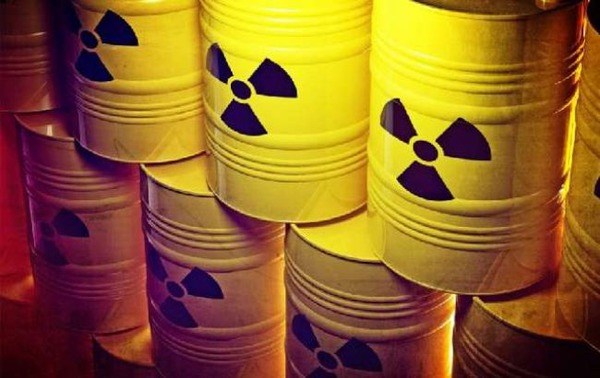Germany to send 12,000 tons of nuclear waste to Russia
After a hiatus of 10 years, Russia has started importing radioactive waste from Europe once again. Between 2019 and 2022, Russia will receive 12,000 tons of depleted uranium from Germany, Die Tageszeitung reports.
The waste will comprise of so-called “uranium tailings”, byproducts of the enrichment process used to make fuel for nuclear power plants, GreenPeace notes. Russia actively imported these materials in the 2000s, but ended the practice in 2009 under pressure from eco-activists, when it was discovered that the waste was being stored in rusty containers under the open sky.
The new contract with Russia was signed by the German subsidiary of the UK-based Urenco Group. The deal was made behind closed doors, but news of it came out after members of Germany’s Bundestag sent an inquiry to the Federal Ministry for Environment, Nature Conservation and Nuclear Safety, TAZ writes.
Between May and September this year, six 600-ton trains (50 containers), in other words 3,600 tons of uranium tailings, were sent from Gronau, Germany, to the Ural Electrochemical Combine in Novouralsk, Russia.
The start of shipments has been confirmed by the government of North Rhine-Westphalia, GreenPeace reports. Over four years, there are plans to send about 20 trains of the waste to Russia.
Russia has already accumulated roughly a million tons of uranium tailings, which are both radioactive and toxic. There are no plans to utilize such a quantity of the waste, and the contracts from before 2009 show that even after re-enrichment, the waste products remain in Russia, GreenPeace notes.
“This is a shameless and immoral business. Urenco needs it to save billions of euros disposing of its own uranium tailings by sending them to Russia. Rosatom’s willingness to earn money by burying essentially foreign waste, which is nonsense in any civilized country, is astounding,” remarked Vladimir Slivyak, co-chairman of the Ecodefense group in Russia.
The same organization coordinated the campaign against importing radioactive waste between 2004 and 2009. In 2014, the Russian government declared it a “foreign agent”.
In Russia, uranium hexafluoride has officially been classified not as nuclear waste, but as a valuable material. However, even if it is re-enriched, at least 80% will remain in Russia as waste at the end of the day, observed Bundestag member Hubertus Zdebel.
“It’s clear that significant quantities of nuclear waste can be disposed of cheaply in Russia,” he said.
